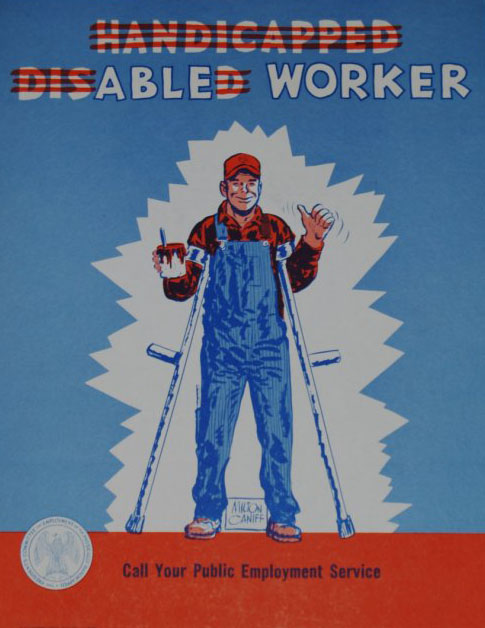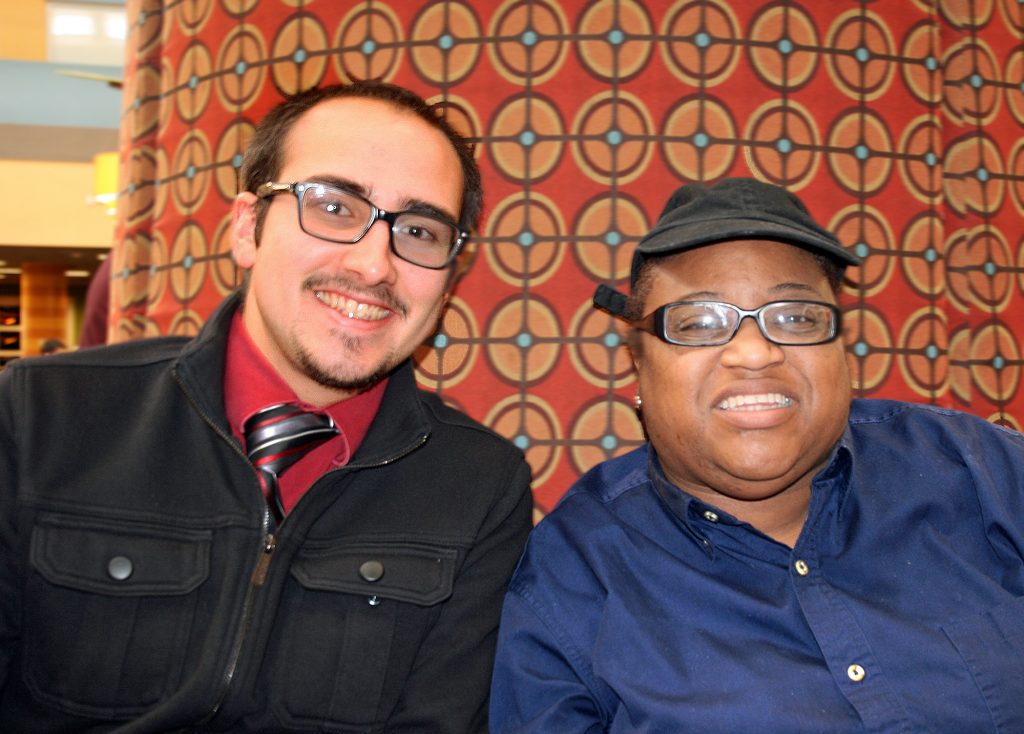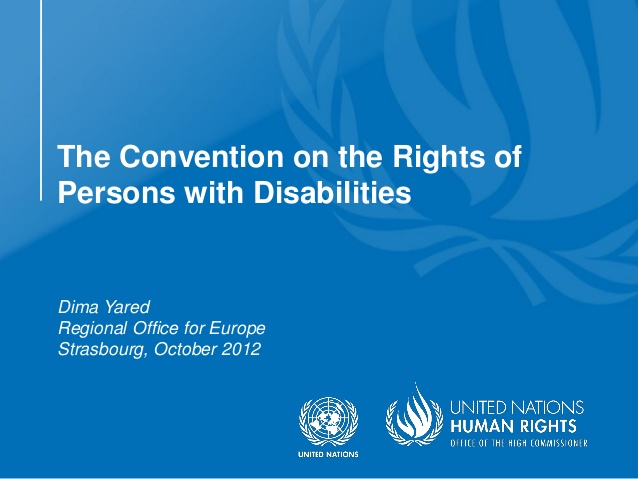
Even back in 1951, attitudes about the ability of workers with a disability were changing… very much for the better.
Disability advocates and self-advocates do not allow disability to define who they are… or aren’t. The same idea applies to employment. In fact, October is National Disability Employment Awareness Month. For 2017, the theme is “Inclusion Drives Innovation.” The idea goes back some 70 years, to October 1945, with President Harry S. Truman’s National Employ the Physically Handicapped Week. In recognizing people with all disabilities, the word “physically” was dropped in 1962. The idea, however, is not new. Back around the turn of the previous century, a caring teacher named Elizabeth Farrell used manual work as one way to provide a meaningful experience for her students with severe disabilities at the Henry Street School in New York City. More recently, the passage of the Americans with Disabilities Act of 1990 has done much to ensure that people with disabilities have access to meaningful work and the independence and dignity it brings. The act prohibits all forms of discrimination of people with disabilities, both in hiring decisions and through a lack or an absence of reasonable accommodations.
As part of our mission to enhance the lives of people with all disabilities and enable their full participation in society, Advancing Opportunities provides employment services, including the following:
- Career planning
- Job Development
- Support for employers
- Accommodations at work sites.
In addition, Advancing Opportunities has earned and maintains CARF accreditation in three areas: job development, job supports, and job-site training. Among the individuals we have served are Scott R. and Tarah C.
Scott works at a Sam’s Club retail outlet, keeping the parking area clear of shopping carts that posed a risk of damaging customers’ cars. “He’s very dedicated,” says his Employment Specialist, Violet Sekyere-Marfo. “He’d rather be very early than just a little bit late.” Scott loves the independence it affords. In addition, “The people are nice here,” he says.
As for Tarah, “I like interacting with the students and my co-workers,” she says about her job at a university cafeteria. Tarah embraces challenges. One time, she assuaged an irate customer, making things right for her, even though it was one of Tarah’s co-workers who caused the error. “She handled it like a pro,” says her Employment Specialist, Joseph Mydlowski, who notes that Tarah has been handling parts of her job on her own.
And in return, the employers for whom they work benefit from having a more diverse workforce.

Scott R. is proud of the independence his job affords him.

Tarah C. loves working at her job. She received assistance from Joseph Mydlowski, Employment Specialist.
What’s Good
In recent years, more and more employment agencies and business leadership groups are helping job seekers with a disability find a job—and for companies to find these candidates. Among the benefits of hiring people with disabilities are the following:
- With the right supports, they can perform just as well as their non-disabled peers.
- Most employees with a disability are more reliable and less likely to quit than their non-disabled peers.
- Many households include someone with a disability; they are likely to want to support inclusive businesses.
- Hiring people with a disability promotes good will and a positive public image.
- With their positive outlook and sense of humor, people with Down syndrome often make the workplace a nice place to be a part of.
Indeed, says Haben Girma, a deaf-blind attorney and advocate, people with disabilities often “drive innovation.” In other words, hiring people with disabilities is often good business, even beyond the feel-good PR it generates. These employees are of value not just for what they are, but also for who they are.
Challenges Ahead
If work is such an important part of citizenship and civic responsibility, then should not as many people as possible be working? Moreover, having work confers individuals with status and a sense of meaning, as well as independence and dignity. Yet, even with the considerable success of ADA, as a group, people with disabilities are nearly twice as likely to be unemployed or underemployed; only about 1 in 5 are an active member of the work force. In addition, the average month earnings of people with a disability are just slightly over half those of their non-disabled peers.
Two Profiles of Individuals We Have Helped
Our Career Development Services department has, over the years, helped many New Jerseyans with a disability to experience the dignity of a job and enhance their independence of full participation in society. In addition to résumé building and job placement, Employment Specialists provide on-the-job support and transportation arrangements, all individually tailored to the individual needs of each consumer. Advancing Opportunities has earned and maintains CARF accreditation in three areas:
- Job development
- Job supports
- Job-site training.
Recently, in the News
Five U.S. representatives have come together to launch the Bipartisan House Working Group on Employing People with Disabilities. The effort is backed by the National Down Syndrome Society (NDSS), with its Law Syndrome advocacy campaign. Both the representatives and NDSS seek to turn around current federal laws and policies that prevent or dissuade people with all disabilities from working and how to turn this situation around. The first step was the creation of ABLE accounts, which allow people with disabilities (or their guardians) to set aside $14,000 with no effect on their eligibility for government financial supports. According to NDSS, the legislation should include the following four points:
- The ability to seek employment and work for a wage, ending sub-minimum wage practices
- Enable people with disabilities to work and live where they want by enhancing the portability of Medicaid benefits
- Provide small businesses and larger corporations with tax incentives for hiring employees with disabilities, thereby increasing the opportunities available
- Expand the ABLE program and similar successful initiatives to increase economic self-sufficiency.
Did You Know?
- Despite overall progress, especially since the passage of the Americans with Disabilities Act of 1990, only about one in five people with a disability is actively working.
- Until recent decades, few services for people with intellectual disabilities existed. Children were deemed unteachable and most were consigned to asylums to live out the rest of their lives.
- Access to a job and the independence of earning a living is considered a basic human right worldwide under the United Nations Convention on the Rights of People with Disabilities.

Persons with disabilities have equal rights to work and gain a living. Countries are to prohibit discrimination in job-related matters, promote self-employment, entrepreneurship and starting one’s own business, employ persons with disabilities in the public sector, promote their employment in the private sector, and ensure that they are provided with reasonable accommodation at work (Article 27).
National Disability Employment Awareness Month


